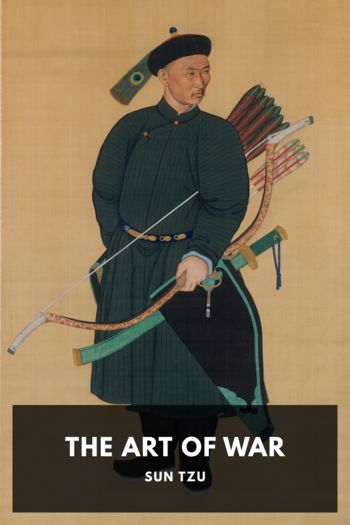The Art of War by Sun Tzu (elon musk reading list TXT) 📕

- Author: Sun Tzu
Book online «The Art of War by Sun Tzu (elon musk reading list TXT) 📕». Author Sun Tzu
“High ground,” says Mei Yao-chʽên, “is not only more agreeable and salubrious, but more convenient from a military point of view; low ground is not only damp and unhealthy, but also disadvantageous for fighting.” The original text and the Tʽu Shu have 好 instead of 喜. ↩
Tsʽao Kung says: 向水草可放牧養畜 “Make for fresh water and pasture, where you can turn out your animals to graze.” And the other commentators follow him, apparently taking 生 as = 牲. Cf. Mencius, V 1 IX 1, where 養牲者 means a cattle-keeper. But here 養生 surely has reference to the health of the troops. It is the title of Chuang Tzǔ’s third chapter, where it denotes moral rather than physical well-being. ↩
實 must mean dry and solid, as opposed to damp and marshy, ground. This is to be found as a rule in high places, so the commentators explain 實 as practically equivalent to 高. ↩
Chang Yü says: “The dryness of the climate will prevent the outbreak of illness.” ↩
The Tʽung Tien and Yü Lan have a superfluous 下 before 水. ↩
絕澗, explained by Mei Yao-chʽên as 前後險峻水橫其中. ↩
天井, explained as 四面峻坂澗壑所歸 “places enclosed on every side by steep banks, with pools of water at the bottom.” ↩
天牢 “natural pens or prisons,” explained as 三面環絕易入難出 “places surrounded by precipices on three sides—easy to get into, but hard to get out of.” ↩
天羅, explained as 草木蒙密鋒鏑莫施 “places covered with such dense undergrowth that spears cannot be used.” ↩
天陷, explained as 卑下汙





Comments (0)